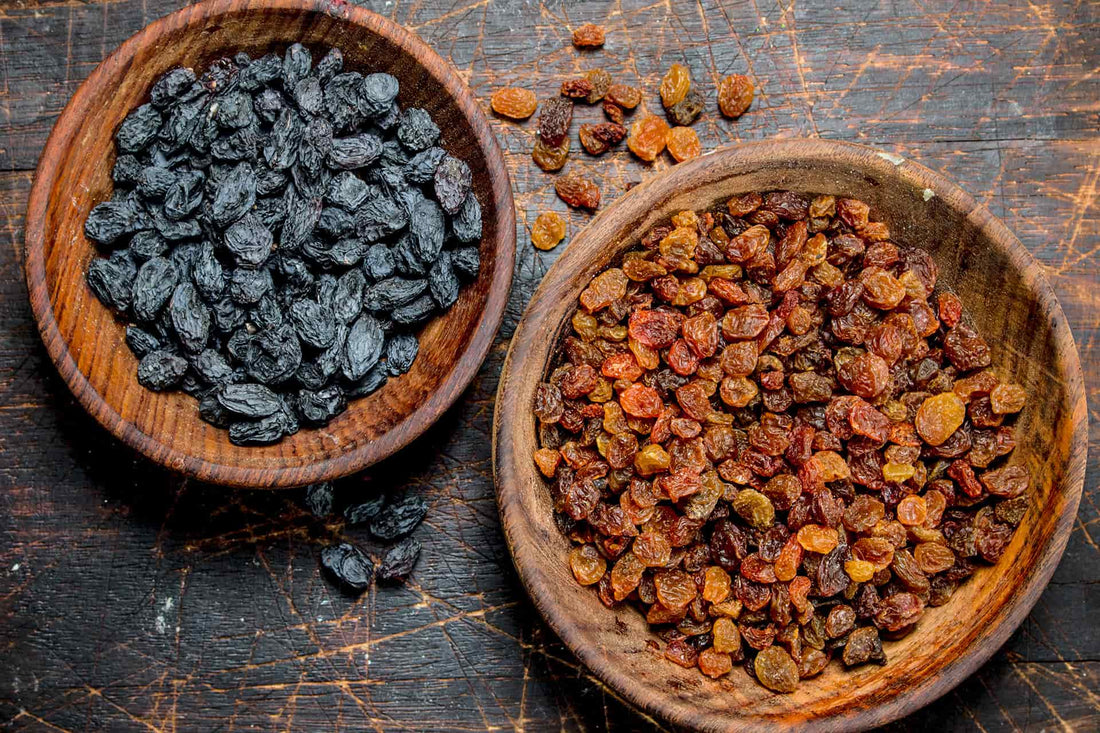
Raisins: Natural and Nutritious Sweetness
Share
Raisins, those small, sweet, wrinkled nuts, are dried grapes that have been prized throughout history for their flavor and health benefits. Native to regions such as the Mediterranean and Asia Minor, raisins have been a staple food in many cultures, valued for both their convenience and nutritional value.
A Concentrated Source of Nutrients
Despite their size, raisins are a concentrated source of energy and nutrients, including:
- Fiber: Essential for healthy digestion.
- Iron: Important for preventing anemia and improving energy.
- Calcium and Boron: Keys to bone health.
- Antioxidants: Such as flavonoids, which combat free radical damage.
The Multiple Benefits of Raisins
Including raisins in your diet can offer several benefits, such as:
- Improve digestion: Thanks to its high fiber content.
- Support heart health: By reducing blood pressure and cholesterol.
- Strengthen bones: Due to its calcium and boron content.
- Natural energy: Ideal for athletes and active people.
Varieties of Raisins
Raisins come in different types, depending on the grape variety and the drying method:
- Black raisins: Made from dark grapes, they are the most common.
- Golden raisins: Dried with hot air, they are softer and lighter in color.
- Currants: Small and intensely flavored, from the Corinth grape.
Incorporating Raisins into Your Diet
Raisins are extremely versatile in the kitchen:
- As a snack: Perfect for a quick energy boost.
- In baking: They add natural sweetness to breads, cookies and cakes.
- In savory dishes: They combine well with meats, salads and stews.
- In cereals and yogurts: For a nutritious and delicious breakfast.
Raisins are not just a sweet snack, but a valuable nutritional addition to any diet. We encourage you to discover the versatility and benefits of this small fruit in your daily diet.




















